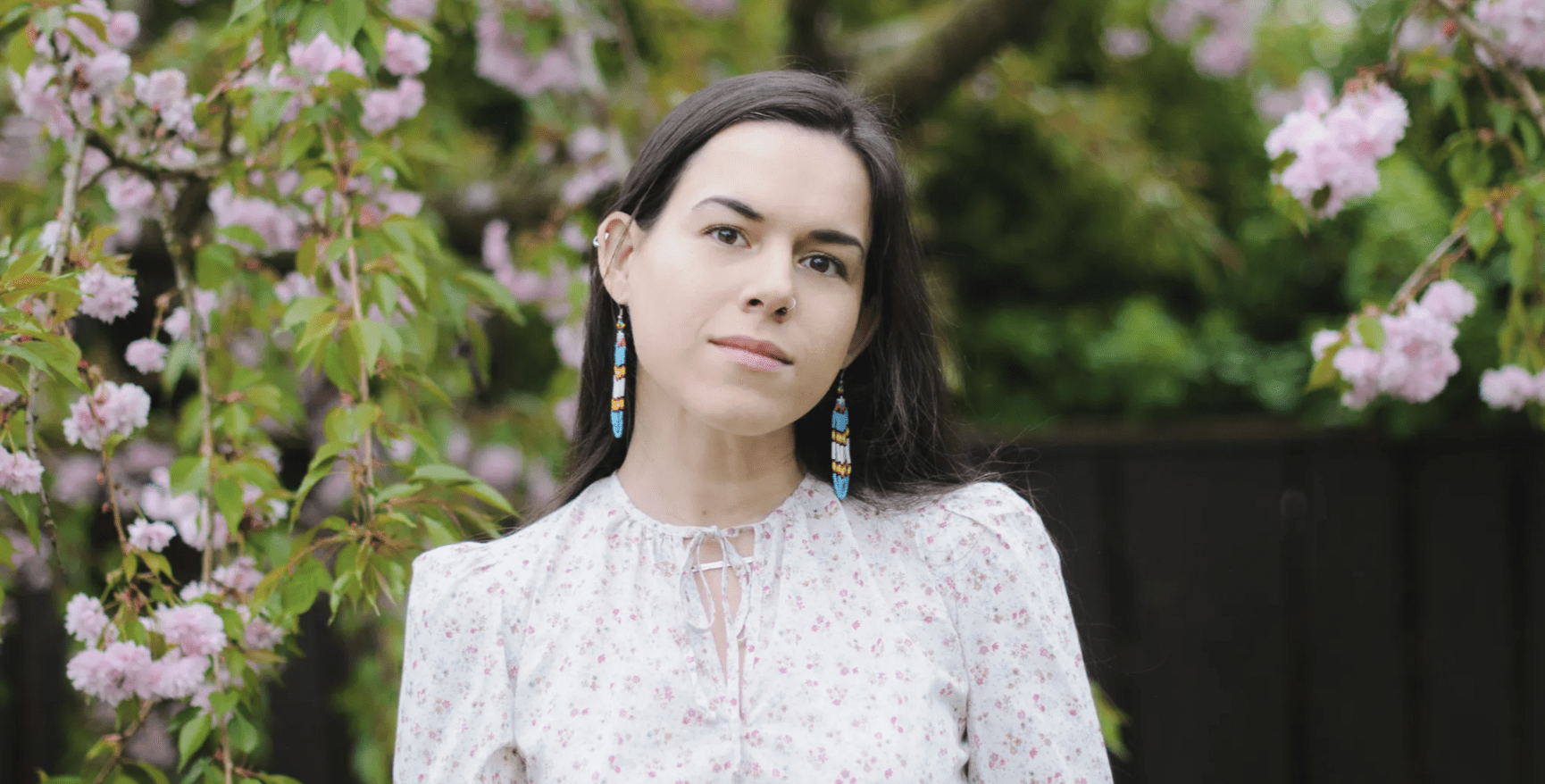Creative writing professor and award-winning poet, Kenzie Allen’s latest poetry collection, Cloud Missives, celebrates the healing journeys of the self while remaining patient in understanding the weighty connections of culture and emotion. She is offering new ways to understand and recover the identity of Indigenous peoples across Canada and the United States.
Allen, whose grandmother was an opera singer, remains true to her legacy, as musicality echoes throughout the work. She does not shy away from multi-modality as she incorporates operatic cadence to establish the speaker’s role within the poems. In the section of her collection titled “Love Songs,” Allen creates a relationship between the person singing and the person being sung to, using poetry as a tool for musical storytelling.
Multi-modal art rings through the poems in Allen’s collection as she embraces the joys and challenges of the Indigenous experience while reclaiming the power of her narrative. Allen leaves a trail of breadcrumbs alluding to her thoughts between each poem while allowing the reader the freedom of interpretation.
She also draws from many different poetic modes and forms, such as persona poems and wisdom poems to enhance her collection with charming depth. When asked about the poetic modes she gravitates towards, Allen shares she follows “this idea of open or flexible forms rather than strictly received forms, like the sonnet or the sestina.
“I’m really interested in [the kinds of] frames that can be provided. So, if you call a poem a prayer, what does that trigger in the reader’s mind, [such] that they’ll bring that idea of what a prayer is to the poem,” says Allen.
Allen’s work has resonated with the poetic community at York. “Her poignant mediation on the unspoken communications between generations captures the transient yet powerful connection that exists in nature, memory, identity and love,” says Tori Gosse, a fifth-year biology and creative writing student.
A major theme in Cloud Missives, the “excavation of memory and the self,” was partly inspired by Allen’s multidisciplinary approach and love of anthropology and archeology.
“Anthropology and archeology are essentially a form of storytelling. You look at the remains in front of you and the physical markers of a culture, and you try to story them back together based on whatever evidence you can find. And every time you do that […] the [interpreted] evidence affects the story that gets told,” says Allen.
Allen’s mastery of language and form invites readers to contemplate the delicate threads of connection that bind us to one another, even when distance — whether physical, emotional, or temporal — seems to stand in the way. This collection is both an intimate reflection on the personal and a broader meditation on how we reach out to the universe, each other, and our ancestry.
Allen is currently working on two other projects surrounding forms of extended metaphors and expanding her use of multi-modal art. Allen hopes to explore themes of motherhood in relation to the Indigenous experience as she develops her upcoming project, Diary of Belief. To learn more about Kenzie Allen and her work, visit her website.

